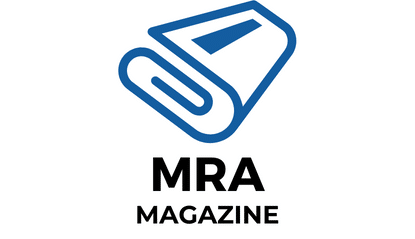What’s the Best Nutrition Plan for a German Shepherd with EPI (Exocrine Pancreatic Insufficiency)?

When your beloved German Shepherd is diagnosed with Exocrine Pancreatic Insufficiency (EPI), you may find yourself overwhelmed with a flood of worries and questions. As pet owners, it’s your responsibility to ensure their health and wellbeing. With a condition like EPI, diet plays a significant role in managing the symptoms and ensuring your pet’s comfort. It’s all about understanding your dog’s needs and tailoring their food intake accordingly. This article will shed light on the best nutrition plan for a German Shepherd with EPI.
Understanding the Role of the Pancreas in Digestion
The pancreas is an integral part of a dog’s digestive system. It produces vital enzymes that break down food into its essential components: carbohydrates, proteins, and fats. When a dog has EPI, their pancreas fails to produce enough of these enzymes. This leads to a situation where the dog is eating, but not absorbing the nutrients they need from their meal. This can result in weight loss, despite a healthy appetite, and other symptoms like diarrhea and flatulence.
A voir aussi : How to Set Up a Habitat for a Blind Guide Dog in Retirement?
EPI: How it Affects German Shepherds
EPI is particularly common in German Shepherds. The cause remains unknown, but researchers believe it might be hereditary. Dogs with EPI often exhibit signs like weight loss, increased appetite, and voluminous, fatty stools. If your shepherd is showing these signs, consult your vet immediately. EPI can be diagnosed through a simple blood test, and although it’s chronic, it can be managed effectively with proper diet and care.
Tailoring the Diet: The Importance of Pancreatic Enzymes
EPI dogs lack the pancreatic enzymes necessary for digestion, so these must be supplemented in their diet. The vet will prescribe powdered pancreatic enzyme supplements that can be mixed with the dog’s food. It’s crucial to mix the enzymes with a moist diet and let it sit for 15-20 minutes before feeding your dog. This pre-incubation period allows the enzymes to start breaking down the food, making it easier for the dog to digest.
Lire également : How to Introduce a Newborn Baby to a Protective Rottweiler?
Choosing the Right Food for Your EPI Dog
Choosing the right food for your German Shepherd with EPI is critical for their health. As a rule of thumb, the diet should be low in fiber and fat. High-fiber foods can interfere with the absorption of enzymes, while excess fat can lead to diarrhea and other digestive issues.
Opt for high-quality dog food that is easily digestible and rich in protein. Some pet owners prefer cooked or raw diets, but these must be carefully balanced to avoid nutritional deficiencies. Always consult your vet before making any significant changes to your dog’s diet.
Regular Check-ups and Monitoring
Once an EPI diagnosis is established and a diet plan is in place, regular vet visits are essential for monitoring your dog’s condition. Weight, stool consistency, and overall health should be regularly assessed. Blood tests may also be necessary to measure the levels of certain nutrients and ensure the diet is meeting all the nutritional needs of your German Shepherd.
The road to managing EPI in dogs involves commitment and patience. With the right diet plan and close collaboration with your vet, you can ensure that your German Shepherd thrives despite their condition. Always remember that every dog is unique, and what works for one might not work for another. Regular vet check-ups, continuous monitoring, and being attentive to any changes in your pet’s behaviour or health are the keys to managing EPI effectively.
While managing EPI can feel overwhelming at first, remember that you’re not alone. With the proper information and support, you can effectively manage your dog’s EPI, ensuring that they lead a healthy and happy life. A German Shepherd with EPI can live just as long and happily as any other pet, so don’t lose heart. Your dog is relying on you to help them navigate this health challenge, and with a little help from your vet and this article, you’re well-prepared to do so.
Just remember, the best diet for an EPI dog is one that’s low in fat and fiber, high in protein, and includes necessary pancreatic enzyme supplements. Regular vet visits and monitoring are also crucial. It’s a journey, but with the right approach and dedication, you can ensure that your furry friend thrives despite their diagnosis.
Grain-Free Food for EPI German Shepherds
It’s important to note that grain-free food is often recommended for dogs with EPI. Since grains are hard to digest due to their high fiber content, they can cause additional strain on a dog’s already compromised digestive system. Since EPI German Shepherds have a reduced ability to break down and absorb nutrients from their food, a grain-free diet can help reduce the amount of undigested food that passes through their system, aiding in better nutrient absorption.
When selecting a grain-free diet for your German Shepherd with EPI, focus on finding a high-quality product that offers a balanced nutrition profile. Look for foods that are high in protein content and low in fat content. Protein is essential as it helps build muscles and support overall growth and development. Since EPI inhibits the digestion and absorption of fats, a diet low in this macronutrient can help prevent associated issues like diarrhea.
In addition to being grain-free, the food should also be enriched with essential vitamins and minerals. The addition of digestive enzymes can further assist in breaking down the food, making it easier for your dog to absorb the necessary nutrients. Remember, always consult your vet before switching to a new diet for your EPI dog. They can provide individualized advice based on your dog’s specific needs and conditions.
The Role of Hydration
Hydration is crucial for all dogs, but even more so for dogs with EPI. Ensuring your German Shepherd stays well-hydrated is a key part of managing their condition. Water aids in digestion and nutrient absorption, both of which are compromised in dogs with Exocrine Pancreatic Insufficiency.
Always have fresh water accessible for your dog, encouraging them to drink regularly. Some pet owners find adding a little bit of low-sodium broth to their pet’s water can make it more appealing. You can also increase their hydration through their diet by feeding them wet food or adding water or low-sodium broth to their dry dog food.
Conclusion: Managing EPI with the Right Nutrition
EPI, while a chronic condition, doesn’t have to significantly compromise the quality of your German Shepherd’s life. With the right nutrition plan, regular vet check-ups, and loving care, your pet can live a fulfilling, active life.
Remember, the best dog foods for an EPI German Shepherd are low in fat and fiber, high in protein, and grain-free. Pair this with a good hydration plan and regular supplementation of pancreatic enzymes, and you’re on the right track.
While it may take some time to find the right diet that your dog enjoys and responds well to, your patience and dedication will pay off. Your furry friend relies on you to navigate their health challenges, and with the guidance offered here, you’re well prepared to do just that.
Lastly, don’t forget to regularly consult with your vet. They can provide expert advice and adjust your pet’s diet plan as needed, ensuring your German Shepherd with EPI receives all the necessary nutrients they need. This journey may seem daunting initially, but with the right approach, your pet can thrive despite their diagnosis.
